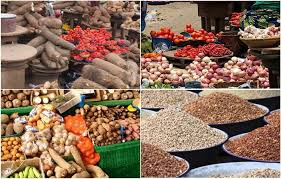


Food security at risk: Nigeria needs a comprehensive response
Nigeria is confronted not just by terrorism or economic instability, but by a fundamental and urgent need: food security. The country’s food inflation has surged to 40.8 percent, sounding a dire alarm that hunger looms large on the horizon. Shockingly, 32 million people, including 15.6 million children, are projected to face hunger this year, marking a staggering 25 percent increase from last year.
In 2023, the World Food Programme ranked Nigeria second globally in food insecurity, a stark reality for a nation blessed with vast arable land suitable for cultivating diverse crops. So, why is Nigeria grappling with this crisis despite governmental efforts?
The answer lies in a blend of factors: climate change, conflict, and inadequate agricultural policies. Climate change has led to crop failures, reduced yields, and unpredictable farming conditions due to altered rainfall patterns.
Conflict and insecurity in various regions have also disrupted food production and distribution. Moreover, Nigeria’s agricultural sector suffers from insufficient investment, infrastructure, and technology, hindering efficient food production and distribution.
The country’s reliance on imported food exacerbates the issue. The consequences of inaction are severe: hunger leads to malnutrition, stunted growth, and heightened mortality rates, particularly among children. It further aggravates social and economic challenges such as poverty, crime, and instability.
An encouraging example is the innovative initiative in Jigawa State, aiming to ensure sustainable food security, economic empowerment, and improved livelihoods. This proactive approach merits acknowledgment and replication nationwide.
Recently, the state launched an agricultural support program targeting civil servants, a significant segment of the state’s population, to supplement their incomes and support their families.
As part of this initiative, the state has allocated N3.3 billion in agricultural loans to civil servants. These loans cover inputs like fertilisers, chemicals, and pesticides for cultivating millet, sorghum, and sesame.
Governor Umar Namadi highlighted that this program is part of a broader agricultural transformation initiative designed to enhance food security and economic diversification at both state and national levels.
The program aims to reduce civil servants’ reliance on their salaries by promoting large-scale farming, thereby bolstering food security and enhancing financial stability. It seeks to boost agricultural productivity by encouraging more extensive participation and optimal land use within the state.
Effective implementation of this program should mitigate the impact of soaring food prices, which have eroded purchasing power among workers. To ensure sustainability, the government has instituted safeguards, including limiting beneficiaries’ debt to one-third of their gross salary.
While promising, similar initiatives have been prone to misuse, with some viewing funds as entitlements and senior officials exploiting the system for personal gain. Therefore, rigorous measures must be implemented to prevent abuse and ensure the program’s sustainability, enabling genuine beneficiaries to benefit.
Immediate action is imperative to tackle this crisis: investing in agriculture, supporting farmers, and establishing sustainable food systems are critical steps. Addressing climate change and conflict will also mitigate the effects of hunger.
Nigeria cannot afford to delay; the clock is ticking. The time to act is now to prevent a catastrophic hunger crisis that will have profound implications for the nation and its people. While insecurity remains a significant issue, it is only one facet of the problem.
To avert this impending disaster, both government and private sector stakeholders must prioritise investments in sustainable agriculture. Leveraging technology, providing essential infrastructure, soft loans, and agricultural inputs to farmers and small businesses can accelerate progress toward food security.
The moment demands action. Nigeria’s future hinges on adopting a comprehensive approach to addressing food insecurity, integrating security measures with sustainable agricultural practices. Only then can we hope to prevent the looming hunger crisis and secure a food-sufficient future for generations to come.



